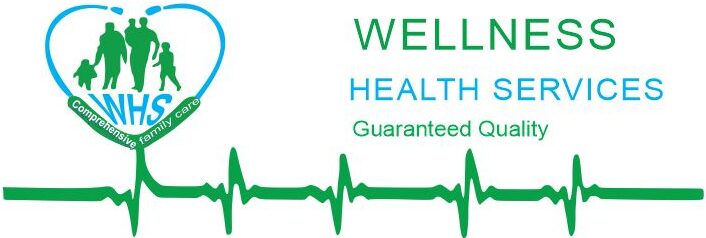When you hear the words “You have cancer,” your whole world changes. The diagnosis is heavy enough to carry for yourself — but when you’re also a parent, another weight quickly follows:
How do I tell my children?
Many parents want to protect their kids from pain by staying silent. Others worry about saying the wrong thing. But research — and decades of experience in pediatric and family oncology — tells us something clear: Children cope better when they are told the truth in a way they can understand.
👀 What Kids Already Know
Even when you don’t say the word “cancer,” children notice changes:
- The hushed phone calls.
- The tiredness in your eyes.
- The hospital visits.
They might imagine something worse than reality if they’re left in the dark. As one psychologist explains: “Children fill in the blanks with their own fears. Often, their imagined story is scarier than the truth.”
🌱 Principles for Talking with Your Child
Here are evidence-based principles gathered from oncologists, psychologists, and cancer support organizations:
- Be Honest — Use the Word “Cancer.”
Euphemisms like “bad cells” or “a little sickness” can confuse children. Cancer Research UK emphasizes that children should hear the real word, so they don’t learn it later from someone else. - Keep It Simple & Concrete.
Use language that fits your child’s age. For a young child:
“Mommy has an illness called cancer. The doctors are giving me very strong medicine to help me get better.”
- Don’t Delay.
Kids sense when something is wrong. Mass General Brigham advises: start with what they’ve already noticed — “You may have seen me going to the hospital a lot” — and then explain why. - Encourage Questions.
And it’s okay if you don’t have all the answers. You can say, “I don’t know yet, but I’ll find out.” - Reassure Them.
- Cancer is not contagious.
- They did nothing to cause it.
- There will still be love, routine, and care around them.
🧒 Tailoring Your Conversation by Age
- Toddlers & Preschoolers (under 6):
Short, simple words. Repeat often. Reassure them who will take care of them.- Example: “Daddy is sick, but Grandma will take you to school.”
- School Age (6–12 years):
They can understand more detail. Use drawings, stories, or videos to help. Encourage them to ask, “What does chemo do?” - Teens (13+):
Respect their need for honesty and independence. Involve them in updates. Acknowledge their feelings — even anger.
💊 Talking About Treatment & Side Effects
Hair loss, nausea, and fatigue can frighten children if they’re unexpected. Explain in advance:
- “The medicine that fights the cancer also makes my hair fall out.”
- “I may need to sleep more, but that’s not because of you.”
The Imaginary Friend Society’s video “What is Cancer?” uses playful animation to help children visualize what’s happening in their parent’s body. Tools like this make complex ideas less scary.
❤️ Supporting Your Child’s Emotions
Your child may cry. They may get angry. They may seem fine one moment and withdrawn the next. All of this is normal.
Your role is not to erase their feelings, but to listen and validate:
- “I can see you’re worried. I feel worried sometimes too.”
- “It’s okay to be sad.”
Creating space for their feelings helps them feel secure.
🧭 When to Ask for Help
If your child shows ongoing distress — nightmares, withdrawal, or big behavior changes — reach out for professional support. Oncology social workers, child psychologists, and faith communities can provide guidance.
You don’t have to do this alone.
📺 Helpful Resources
- How to Talk to Children about Cancer – MSK Podcast
- Imaginary Friend Society: What is Cancer? (YouTube)
- Cancer Research UK: Talking to Children
- ONS: 6 Strategies for Talking to Kids
🌟 Final Reflection
Telling your child about cancer isn’t a one-time event — it’s an ongoing conversation. You don’t need to be perfect. You just need to be present.
As one cancer parent shared:
“I thought I had to protect my children from the truth. But when I finally told them, we cried together — and then we laughed together. They gave me strength I didn’t know I had.”
Talking to your kids about cancer is not just about sharing facts. It’s about sharing love, honesty, and hope — even in the hardest moments.
📖 References
- Wiener L, et al. Don’t Be Afraid to Speak Up: Communication Advice for Parents and Clinicians. Pediatric Blood & Cancer. 2021;68(8). PMC8286806
- Memorial Sloan Kettering Cancer Center. How to Talk to Children About Cancer. Cancer Straight Talk Podcast. 2022. MSKCC
- Cancer Research UK. Talking to Children About Cancer. 2023. CRUK
- Mass General Brigham. Talking to Children About a Parent’s Cancer Diagnosis. 2022. MassGeneralBrigham
- Oncology Nursing Society. 6 Strategies for Talking to Kids About a Family Member’s Cancer. ONS Voice, 2024. ONS
- Scientific American. How to Talk to Kids About Cancer. 2019. SciAm
- Stenmarker M, et al. The Day One Talk, 20 Years Later: What Have We Learned? Pediatric Blood & Cancer. 2023;70(5). PMC10113114
- Imaginary Friend Society. What is Cancer? YouTube Video

